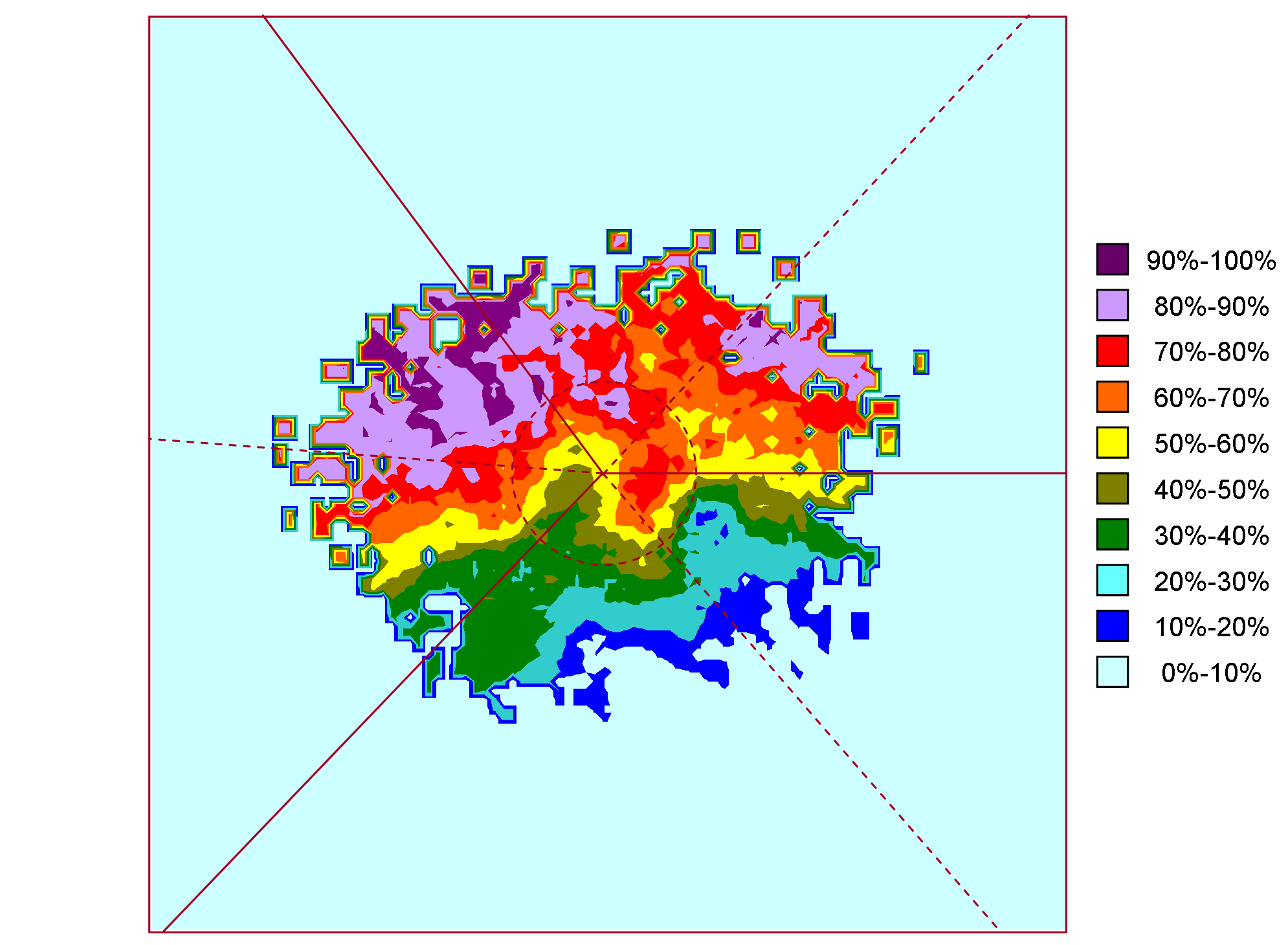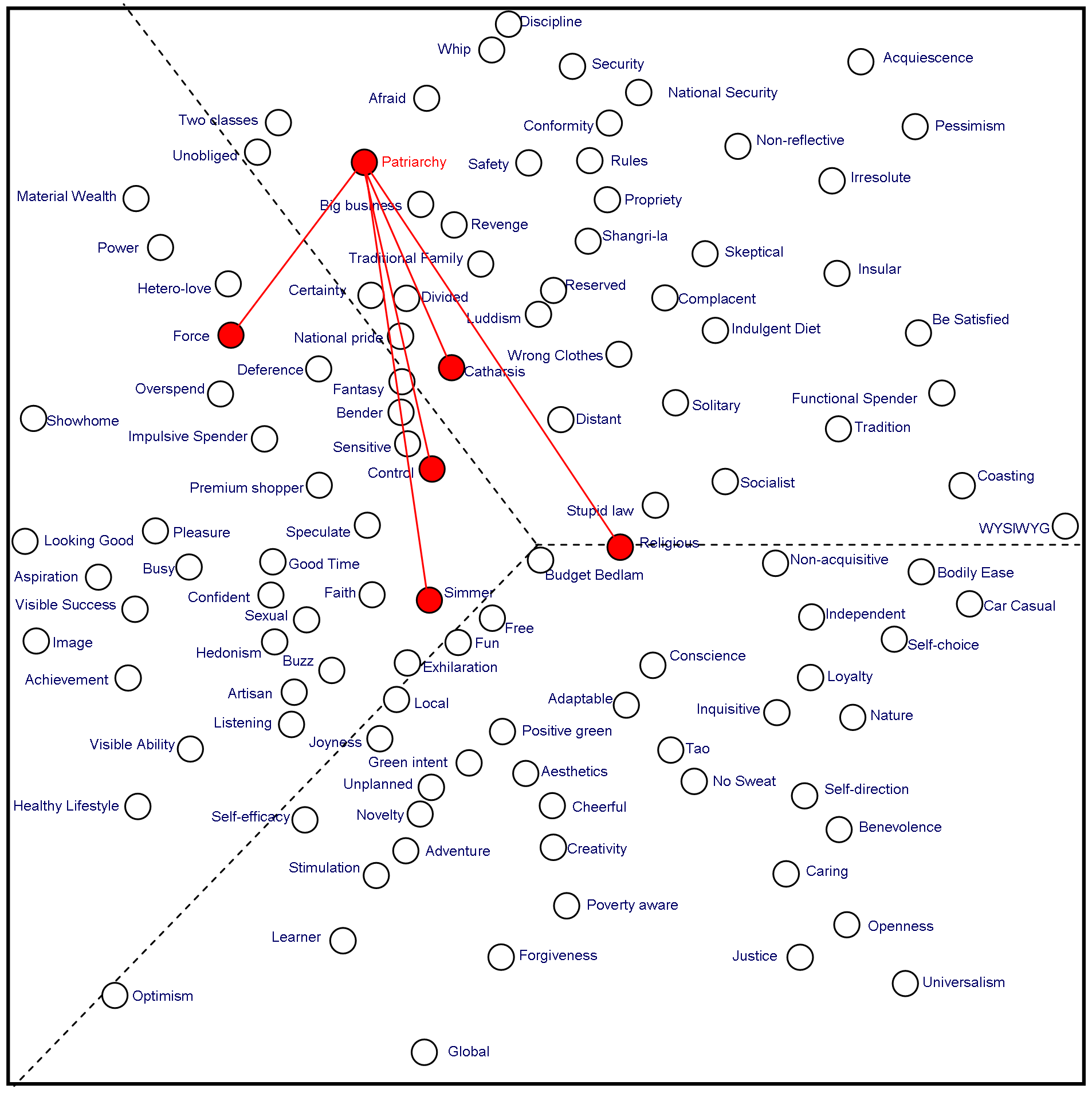

PATRIARCHY
 |
For me, a man’s place is at work and woman’s place is in the home. I believe men are naturally superior to women.
This is an Attribute that is largely rejected by Pioneers. More than 75% of espousers are Prospectors and Settlers, with Settlers being the most over-indexed.
Slightly over-indexing in the 22-44 age group, the prime family-rearing ages, Patriarchy can be expected to influence fathers especially, but also some mothers. There is no discrimination by socio-economic group – it runs through all classes.
Patriarchy espousers, men especially, support the use of force to get what they want. This is more likely than average to lead to violence in their workplaces – more in the form of bullying than outright violence. This bias to act first and think about it later also extends to the family home. Everyone should ‘know their place, play their role’ and expect approbation or sanctions if they step outside the role.
This violence isn’t viewed as an aberration in an otherwise calm and gentle person. Patriarchy espousers are likely to believe that violence is justified if the pressure of everyday life gets to them. It is a way to blow off steam and get back to ‘normal’.
Their ‘normal’ is likely to have a significant amount of potential for explosive anti-social behaviours. They are likely to be attracted to areas or situations where civil disturbance occurs – be it a ‘Friday night’s all right for fighting’ drunken behaviour outside clubs and discos or involvement in riotous behaviours in public meetings and demonstrations. Violence isn’t exclusively the domain of the down-market council estate hoody. Upmarket huntsmen and public school-educated hunt saboteurs are both more than likely to be Patriarchy espousers. Both groups are likely to see violence as normal and even a bit cathartic at times.
Patriarchy espousers will feel righteous about their judgemental attitudes and forceful behaviours towards others. They believe they are realists and theirs is the natural way. They fall back on religion – codified morals – for their justifications. If Christian, they will be more Old Testament-oriented than New: if Muslims, they will be more about fatwas than universal love. Their religion is more important to them than it is to most people, but their ‘religion’ is a version that most wouldn’t support.
Patriarchy espousers want to be in control, to tell others what to do – and they expect others to follow orders and do as they are told to do. This sounds like an old-fashioned version of what ‘leaders’ are supposed to do. Patriarchy espousers would say they are accepting the responsibility of exercising their God-given obligation to lead others, and that the best way to do this to ‘control them’. Whether one agrees with this or not, it is clear from the data that many people in positions of authority today over a range of organisations will hold this view.
This Attribute is right on the polarizing zone creating fault lines in social values. These people are likely to be drawn to politics, national and local, and to senior positions within large public and private organisations. For all the spin they may put on public statements it is likely that their private views are more judgemental and controlling. The problem for these organisations is that their voters and customers see through the spin and disengage from them, in many cases refusing to trust them at all.
Patriarchy is not an ‘old-fashioned’ way of looking and reacting to the world today. It is alive and thriving in 21st century Prospectors and Settlers.
Using PatriarchyDemographic Skews: 1) Over-indexed: Male, 22-24. 2) Under-indexed: Female, 45-54. Patriarchy espousers also espouse other Attributes. The top five most highly correlated Attributes of Patriarchy espousers are, in order of the strength of relationship: 1) Force In total those who espouse Patriarchy also over-index significantly on 33 other Attributes. |
|
If "Patriarchy" (or the associated attributes) are important to you and you would like to delve more deeply, contact us at mail@cultdyn.co.uk
